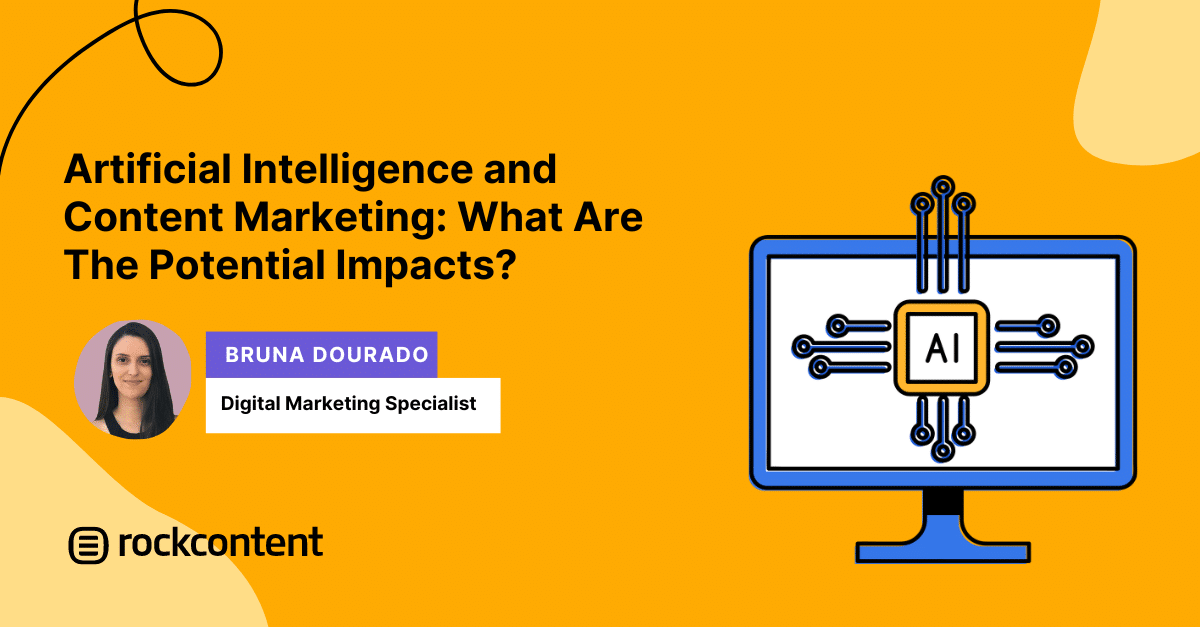No products in the cart.
Content Marketing
What Are The Potential Impacts?
If you haven’t spent 500 days in a cave and out of touch with society, you know that artificial intelligence (AI) has taken over social media and blogs.
It’s almost impossible to go through a LinkedIn or Instagram timeline without coming across a post with thousands of amazing prompts or a huge list of AI tools you need to know about.
But AI makes content creators apprehensive. after all, is it possible to replace these professionals and create content only through tools that create texts, images and videos?
Does artificial intelligence create content?
Generative AI solutions are already part of the tools available to professionals and brands that want to produce content, be it a blog post, a video or an ebook.
Through them, it is possible to research a certain subject more quickly, create drafts, extract new arguments, receive title options, transform audio into text and vice versa… The possibilities are endless.
However, AI is just another option in the toolbox of those who know what goals they want to achieve through content marketing. Quite an option, which can make the process more efficient when used well.
But AI is just a tool. As smart as they are, these features don’t master the nuances of language and the human condition. Therefore, they are not capable of producing quality content by themselves.
When it comes to content creation, the human being continues to be necessary from beginning to end in this process.
Errors, generic texts and ethical issues
Conversational tools based on Generative Artificial Intelligence, such as ChatGPT, have already presented errors and inconsistencies. Not infrequently, these tools deliver distorted information, untrue facts and even demonstrate inappropriate behavior.
Generative AIs based on Large Language Models (LLM) are trained on thousands of pieces of information, be it text, image, voice or structured data. To deliver results that make sense, they are able to search for references, analyze contexts and connect information. But is this enough to replace human labor?
AIs deliver texts that surprise us because they were created by a machine. If the same content were created by a marketer, we would likely be disappointed with the lack of depth and originality.
What generative AIs deliver is a minimally coherent result, based on the information used to train it. And here another problem arises, this time related to its ethical use.
If an AI uses works by an illustrator to generate its own art, would it be practicing plagiarism? Generative AIs are trained on content that is often copyrighted. When we think that the result of this process can be used for commercial purposes, this issue becomes even more controversial.
Tools like Adobe’s Firefly already promise to generate images based only on free content, but this is still a discussion that should gain new chapters in the coming months.
Artificial intelligence as a tool
Technology will continue to evolve and bring endless possibilities for content creation and other marketing activities. But you need to be strategic and understand the pros and cons of using it.
Companies that are betting on AI-generated content, at the end of the day, are trading quality content for generic content that lacks depth. The result can be disastrous not only for the strategy, but for the image and positioning of the brands.
The modern consumer is demanding, has access to information and more power in purchasing decisions. Therefore, they expect to find content that is increasingly personalized and useful for their needs and desires. And to meet these expectations, it is necessary to move towards the humanization of marketing strategies — not the other way around.
Do you want to learn more about the subject and know what to do or not to do when it comes to integrating AI into your content creation process? Access now the interactive ebook “The Impact of Artificial Intelligence on Content Marketing”!



